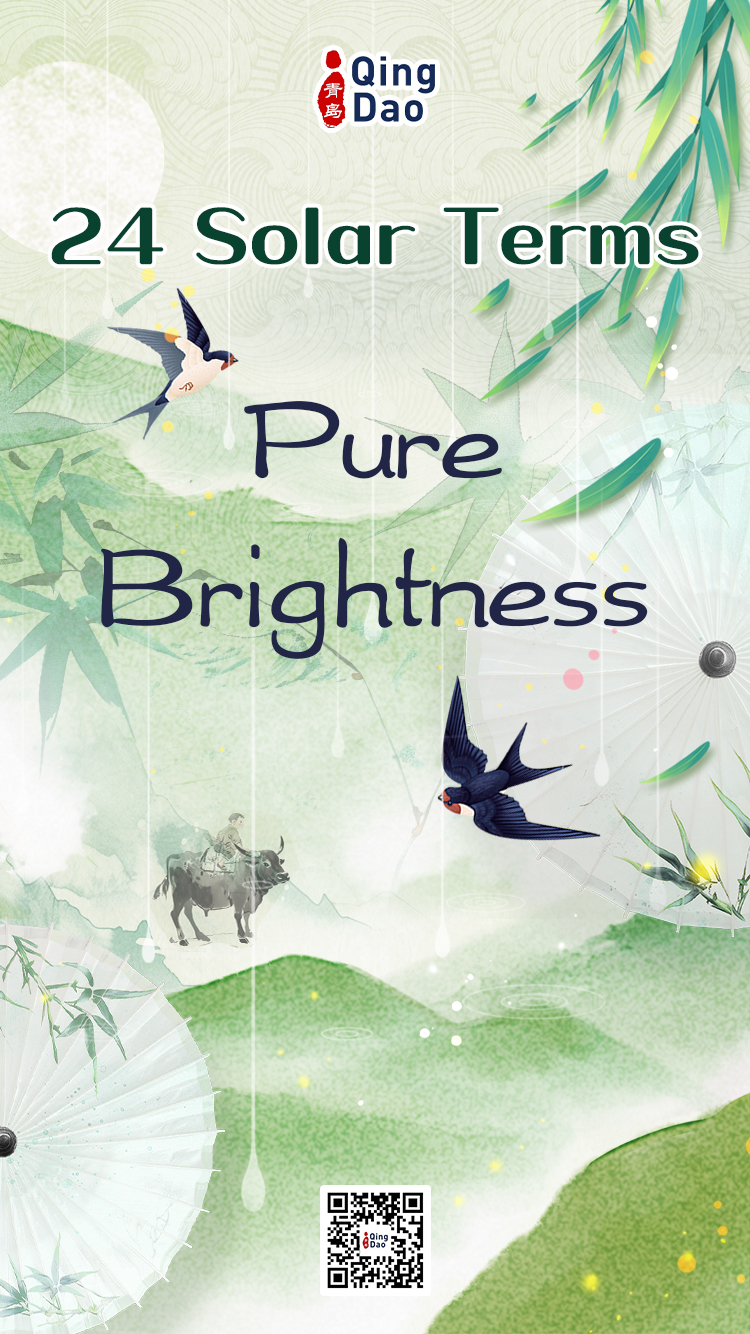The Pure Brightness is Chinese ceremonious and important a spring worship day, which is a traditional cultural festival when people honour ancestors and promote filial piety. The Pure Brightness Festival is usually celebrated on or around the 5th of April on the Gregorian calendar.

Pure Brightness has many customs, and there are differences in the content or details of the customs in different parts of China due to different regional cultures. Although customs vary from place to place, ancestor worship and spring outing is a common basic ritual theme, which expresses the filial piety of the worshipper and the feeling of remembrance of the ancestors, and is a cultural tradition of honouring the ancestors and paying careful attention to the end of life.
Pure Brightness has both natural and humanistic connotations; it is both a solar term and a traditional festival; it is a solemn day for worshipping ancestors and also a joyful festival for people to get close to nature and enjoy the fun of spring. The integration of solar term and folklore is the unity of heaven, earth and human, which fully embodies the thoughts of the ancestors of the Chinese nation who pursued the harmony of ‘heaven, earth and human’, and paid attention to conforming to the time and place and following the laws of nature.
The customs of the Pure Brightness include:
Ancestor Worship: people visit the graves of their ancestors during the Pure Brightness to sweep the graves and pay homage to express their nostalgia and respect for their ancestors.
Spring outing: The Pure Brightness is a spring festival, and many people will choose to go out on this day to enjoy the scent of spring.
Cold Food and Fire Ban: On the Cold Food Festival before Pure Brightness, people will ban fire and eat cold food in honour of Jie Zhitui.
Kite Flying: Kite flying is a traditional activity during Pure Brightness, signifying the release of worries and welcoming new life.
Sticking willow: During the Pure Brightness, people will stick willow branches to pray for peace and health.
These customs reflect closeness to nature and respect for ancestors, which are important cultural connotations of the Pure Brightness.
(By Qu Huili/Qi Qian)




